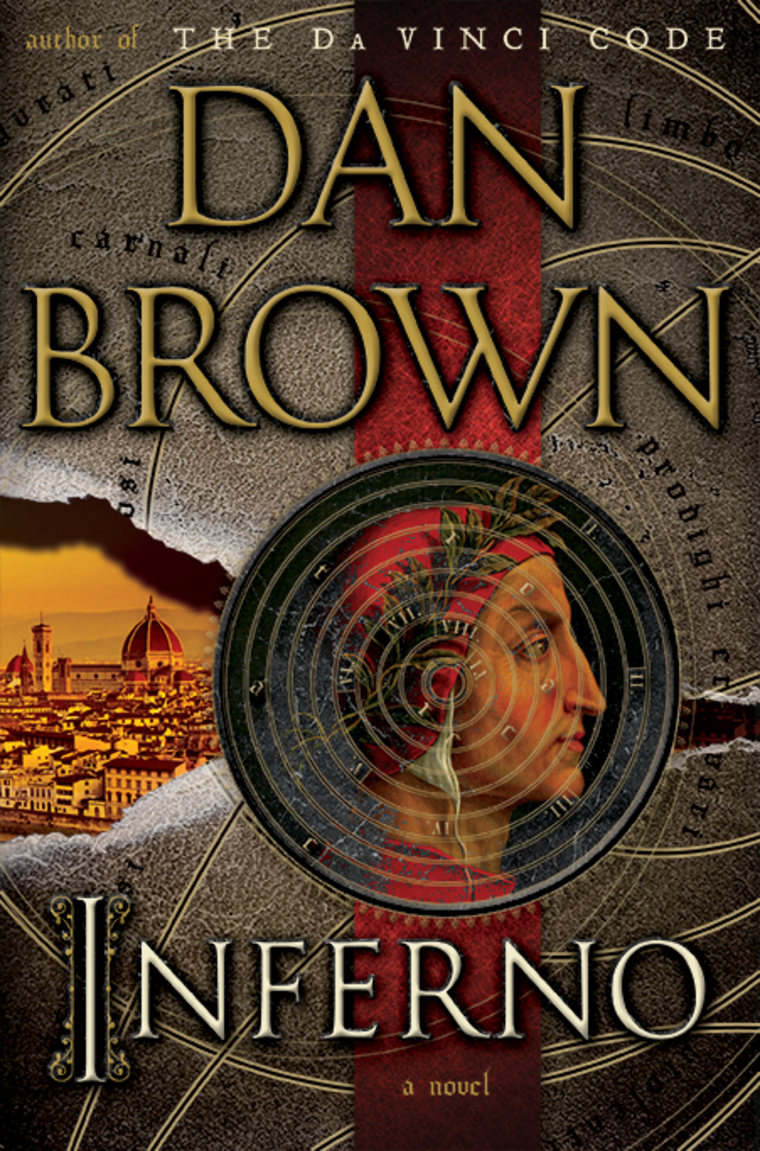While researching his new book, named after and inspired by the classic 14th-century poem “Inferno” by Dante, best-selling author Dan Brown slipped unnoticed into Dante’s church in Florence, Italy, to ask for some inspiration.
Legend has it that Beatrice, Dante Alighieri’s muse and unrequited love, is buried at the small church in Santa Margherita, and it’s tradition to leave letters at her tomb seeking help with love. The author of best-sellers like “The Da Vinci Code’’ and “Angels and Demons” left his own note asking for assistance in completing his new book. “Inferno,’’ Brown’s novel inspired by Dante’s epic poem about the nine circles of Hell, features recurring hero Robert Langdon traveling to Florence to solve mysterious clues found in great works of Renaissance art to stop a threat to mankind.
“My unrequited love was really to write this novel,’’ Brown told Matt Lauer on TODAY Tuesday. “I did write a note. ‘Sing in me, muse, and through me, tell the story of a man versed in symbols.’’’
Click here to read an excerpt of the book
Brown’s note is a quote from Homer, the ancient Greek poet.

“It's a petition, in the same way that Homer was saying, ‘Listen, I've got to write 'The Odyssey,’’’ Brown said. “Sing in me, muse, and help me tell this story.’ I wrote a very similar note and put it in there, and a year and a half later, had a novel. So who knows? Maybe it's magic.”
The villain in “Inferno,” Brown’s sixth novel, follows a movement called transhumanism. Brown, 48, who spent more than two years in Florence researching the book, has been interested in the controversial concept of transhumanism for years.
“Transhumanism is the ethics and science of using things like biological and genetic engineering to transform our bodies and make us a more powerful species,’’ Brown said. “In the last 85 years, our population has tripled, and we add 200,000 new people every day. In this novel, the villain is concerned about this, and he's also a Dante fanatic. Some of his visions of the future parallel Dante's visions of hell.”
Brown also provided a rare glimpse into his New Hampshire home, which contains secret doors and passageways that echo many of his novels. He showed Lauer a “secret passageway” behind a painting that opens into a room where Brown will often write early in the morning. Brown also showed off his library, “The Fortress of Gratitude,” which holds versions of his books in more than 50 languages.
The passageways and secret rooms were dreamed up by Brown, who shared his vision with his architect. “He thought we were crazy,’’ Brown said.
Another of Brown’s enduring passions is music. Every day when he finishes writing, he plays the piano.
“I stop and I play whatever,’’ he said. “I just improvise something. This is definitely one of my other passions.”
With “Inferno’’ marking his sixth novel and a return to the familiar setting of Italy, Brown says he has ideas for at least a dozen more books. However, it may take another petition to the muse to get his next one started.
“I am nowhere on the next one,’’ he said. “I'm exhausted. I just spent three years in hell, as they say. Literally in hell, and I'm exhaling a little bit. This is apparently how I exhale.”